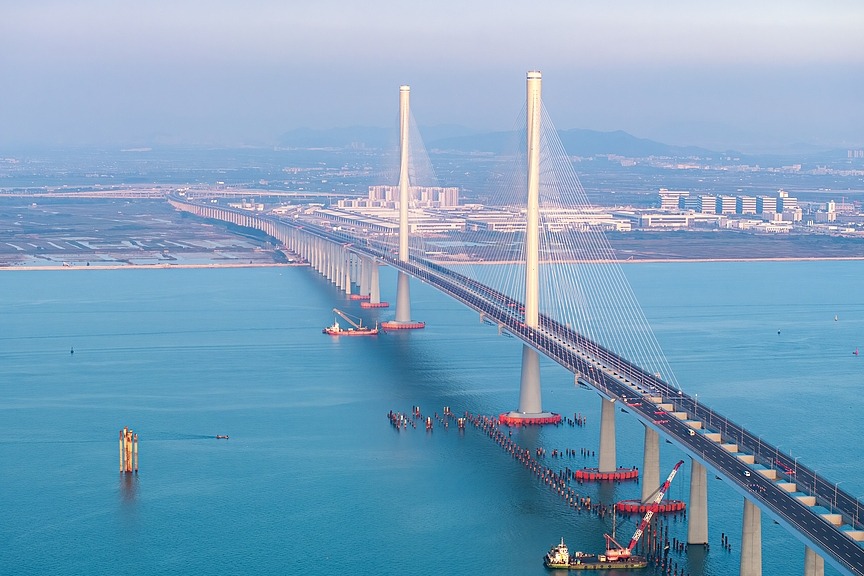SOEs likely to lift emerging industries


China's endeavors to expedite technological advancement and cultivate new quality productive forces will encourage its centrally administered State-owned enterprises to deploy more resources toward developing strategic emerging industries, said senior SOE executives.
Strategic emerging industries in China encompass sectors focusing on energy-saving and environmental protection, next-generation information technology, biotechnology, high-end equipment manufacturing, new energy, advanced materials and new energy vehicles, according to information released by the State-owned Assets Supervision and Administration Commission of the State Council.
Under the government plan, central SOE revenue derived from strategic emerging industries is expected to account for 35 percent of their total revenue by 2025.
Central SOEs, including train manufacturer CRRC Corp, energy giant China Petrochemical Corp (Sinopec) and shipbuilder China State Shipbuilding Corp, are quickening efforts to develop new growth engines in the areas of strategic emerging industries.
In Beijing last week, to boost its revenue, the Beijing-headquartered CRRC unveiled seven new energy locomotives to offer the world new solutions for green, low-carbon development in rail transport. This marked a notable step forward in green transition efforts in both domestic and global markets.
Lin Cunzeng, CRRC's vice-president, said the development of this series of new energy locomotives is a concrete step to promote the renewal and iteration of outdated domestic equipment, advance the green and low-carbon transformation of rail transit equipment, achieve self-reliance and self-improvement in technological innovation.
"They will contribute to the high-quality growth of the Belt and Road Initiative and enrich China's export content," said Lin.
These new locomotives, he said, will drive the demand for diverse new energy products like power batteries and hydrogen energy power packs. They will thus stimulate the development of upstream industries like basic materials and core components, fostering new drivers of economic growth.
Apart from conducting petroleum and natural gas exploration, production, storage and transportation businesses, Sinopec has accelerated the development of the hydrogen energy industry, to seek new growth points in strategic emerging industries.
It had built 11 hydrogen supply centers and 128 hydrogen refueling stations across the country by the end of June, according to information released by Sinopec.
Central SOEs have strong technological reserves, a robust talent pool and substantial financial strength, giving them a certain comparative advantage. This is particularly evident in key areas that require significant investment and have long return cycles, said Liu Xingguo, a senior researcher from the China Enterprise Confederation in Beijing.
Central SOEs' investment in strategic emerging industries totaled 2.18 trillion yuan ($300 billion) in 2023, up 32 percent year-on-year, statistics from the SASAC showed.
Exporting high-end industrial products like liquefied natural gas carriers and energy storage equipment, along with embracing digital transformation and implementing green renovations, have become new growth directions for central SOEs, said Liu.
For example, Shanghai Waigaoqiao Shipbuilding Co Ltd, a subsidiary of Shanghai-headquartered China State Shipbuilding Corp, will deliver four containerships, each with a capacity of 11,000 TEUs (twenty-foot equivalent units) to X-Press Feeders, a Singapore-headquartered container shipping group, said the company in a statement in late May.
The State-owned shipbuilder said that these custom-made vessels will be equipped with an additional methanol fuel power system for future adaptation.
The foreign trade value of Chinese SOEs was worth 2.79 trillion yuan in the first five months, up 1.9 percent year-on-year, accounting for almost 16 percent of China's total foreign trade value, data from the General Administration of Customs showed.




































